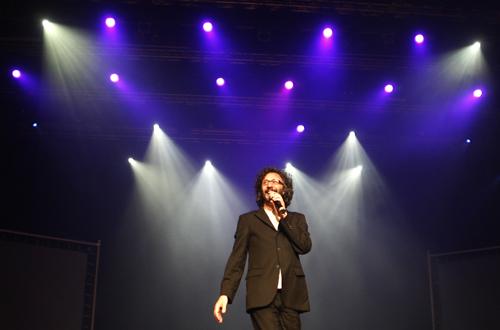U.S. films flood Havana festival, even if many American directors can’t come with them

Dec 7, 2007
HAVANA – Washington’s trade embargo bars almost all Americans from coming to Cuba – but it can’t keep U.S. films out.
Twenty-one full-length U.S. movies and 22 experimental American shorts are being shown as part of Havana’s international film festival, which began Tuesday and runs through Dec. 14 at 23 movie theaters and video clubs across the city.
Most are independent flicks focusing on illegal immigration and the problems Latinos face in America, but movies by Hollywood heavyweights Brian De Palma and David Lynch are also being screened.
“You make an American film and you never expect it to be shown in Cuba,” said Vivien Lesnik Weisman, a Cuban-American who will travel to Havana next week to present her documentary, “The Man of Two Havanas.”
Finished prints of the U.S. films were sent to Cuba through Mexico or Canada, or through European distribution companies. But the U.S. government makes it quite difficult for American directors to present their work on the island.
Get The Daily Illini in your inbox!
De Palma’s “Redacted,” a fictional retelling of the real-life rape and murder of a teenage girl by U.S. soldiers, opened the festival at Havana’s swank Karl Marx theater Tuesday night, but only after one of its Canadian producers read an apologetic statement blaming the director’s absence on U.S. authorities.
“It seems my State Department could not offer me a visa,” De Palma said.
Also showing is Lynch’s powerful yet plot-devoid “Inland Empire.”
Calls and e-mails to Lynch’s representatives asking if he had sought permission from U.S. authorities to travel to Cuba weren’t immediately returned.
The U.S. Treasury Department issues licenses allowing U.S. artists to travel to Cuba for public performances, but Bill Martinez, a San Francisco immigration attorney and producer, said there is reportedly a two-year backlog of performers seeking such permission.
“The numbers of U.S. (performers) are significantly down,” Martinez said.
In Washington, a Treasury Department spokesman wouldn’t comment on pending requests for licenses.
“Under current policy, individuals require a specific license to engage in travel-related transactions involving Cuba and additional transactions that are directly incident to participation in public performances and exhibitions,” he said. “This policy extends to the Havana film festival.”
Alfredo Guevara leads the organizing committee for the communist government-sponsored festival. He says they chose films designed to spotlight Hispanic communities in the United States, but did not otherwise seek out films made in America.
In all, the festival features more than 500 films from 14 countries. Brazil is the best-represented with 34 full-length movies, while Argentina, France, Spain and Mexico are also key contributors.
Other directors also blamed the visa delays for their absence. British director Wash Westmoreland said he won’t be on-hand with his U.S. film “Quinceanera” because he didn’t find out it would be shown in Havana until it was too late to get permission for his co-director Richard Glatzer to travel to Cuba.
“Richard holds an American passport and there’s not enough time to get apply to get a cultural visa,” Westmoreland said. “It’s something we were really excited about doing. I wish we could have.”
One of those who will attend is Mexican director Patricia Riggen, whose U.S.-Mexico border film, “La Misma Luna (Under the Same Moon),” reportedly netted a whopping $5 million distribution deal at the Sundance Film Festival.
Riggen, who holds a Mexican passport but has been a U.S. resident for the past decade, brought her first short film to the Havana festival in 2003. She said outsiders are often enraged by how disrespectful Cuban audiences are, but she considers island moviegoers “very pure.”
“They laugh, they talk, they come in the theater and go out all the time. It can be very frustrating for foreigners,” she said. “But in Cuba, you have … to have patience and understand that’s just the way it is.”
Lesnik Weisman also works as a journalist and can travel on a general media license and without advance permission from the U.S. government. Her documentary, filmed in Havana and Miami, tells the story of her father, Max Lesnik, who was a friend of Fidel Castro before heading into exile in South Florida following a spat over Cuba’s ties to the Soviet Union.
Max Lesnik is still a critic of Castro, but has remained close to Cuba’s government and an opponent of the U.S. embargo – a position that prompted anti-Castro Cubans in Miami to harass their family.
Born in Cuba, the filmmaker says she grew up in the U.S. amid explosions and drive-by shootings as political opponents targeted her father.
“It shows courage, forward thinking and openness in what is considered a closed society,” Lesnik Weisman said of Cuba’s decision to show her movie. “It’s hard to know how Cuban audiences will react.”





